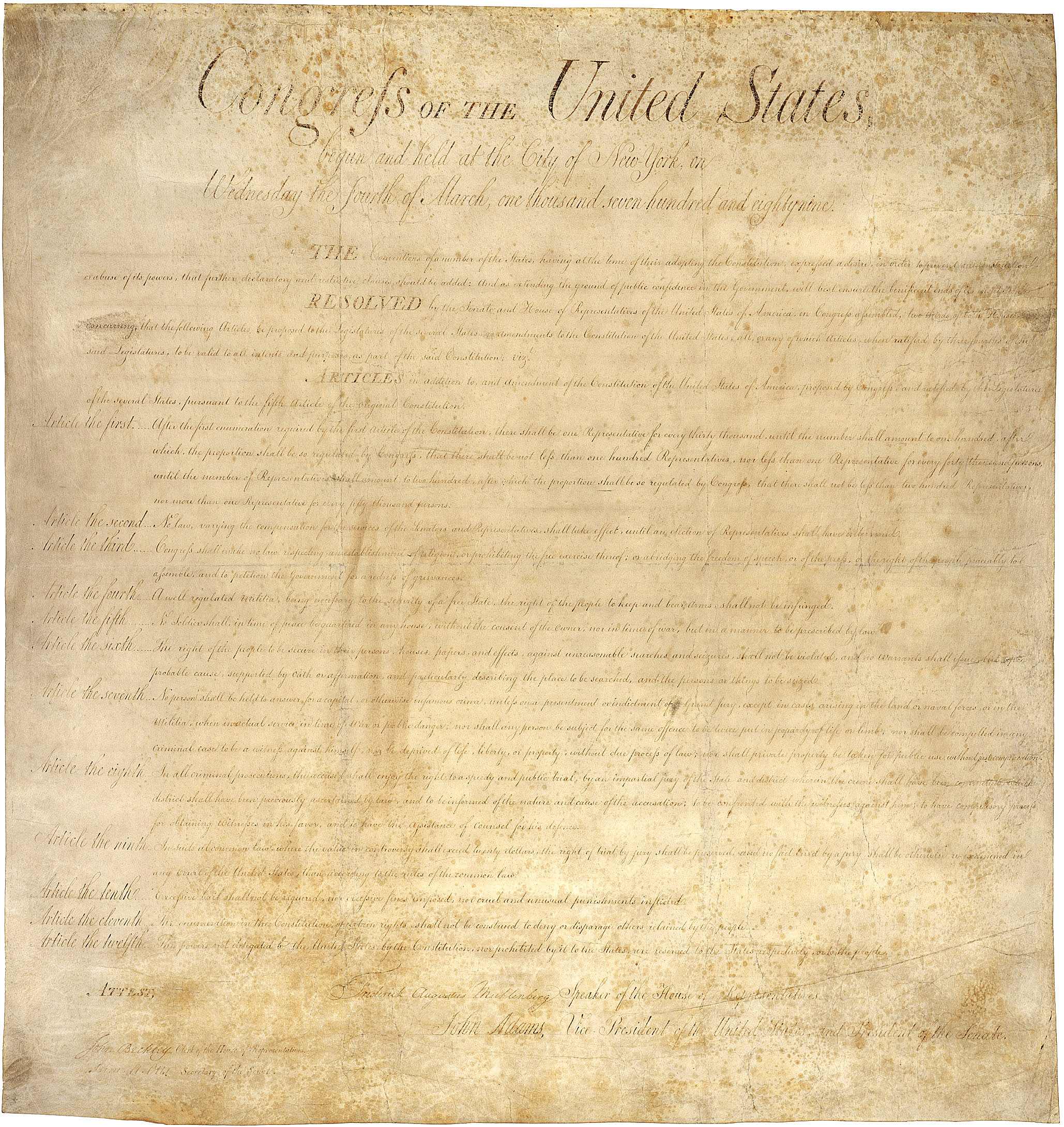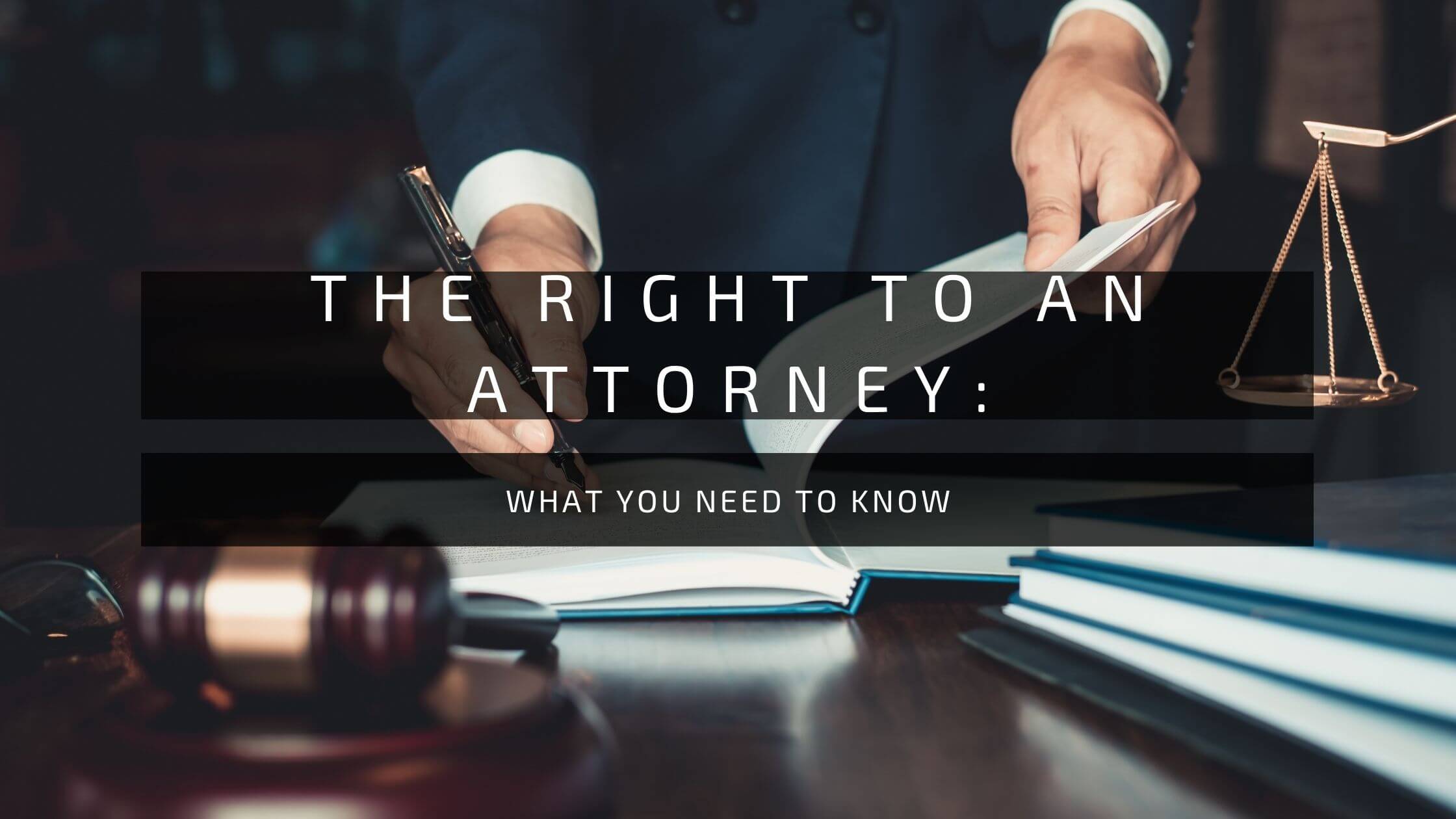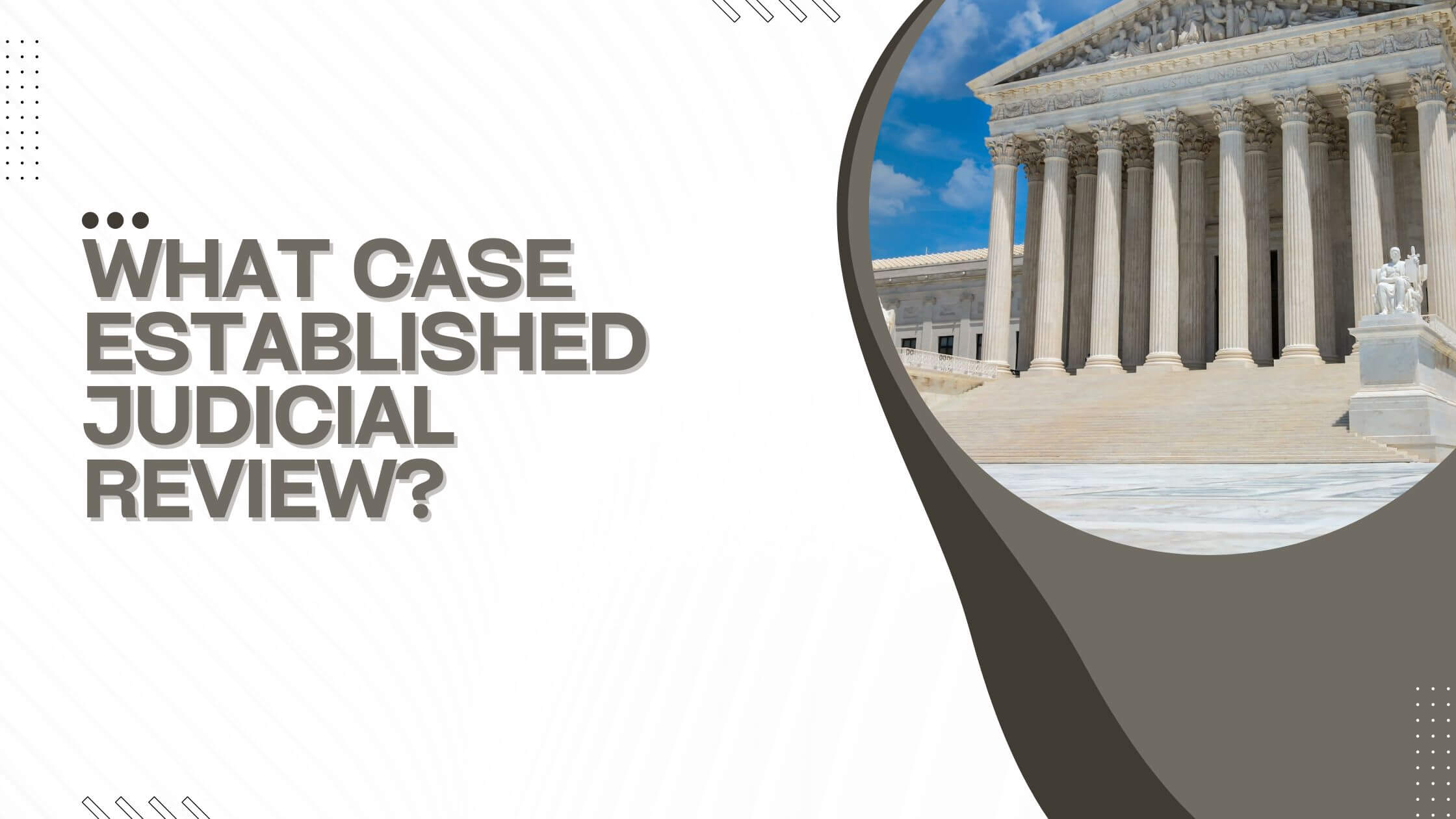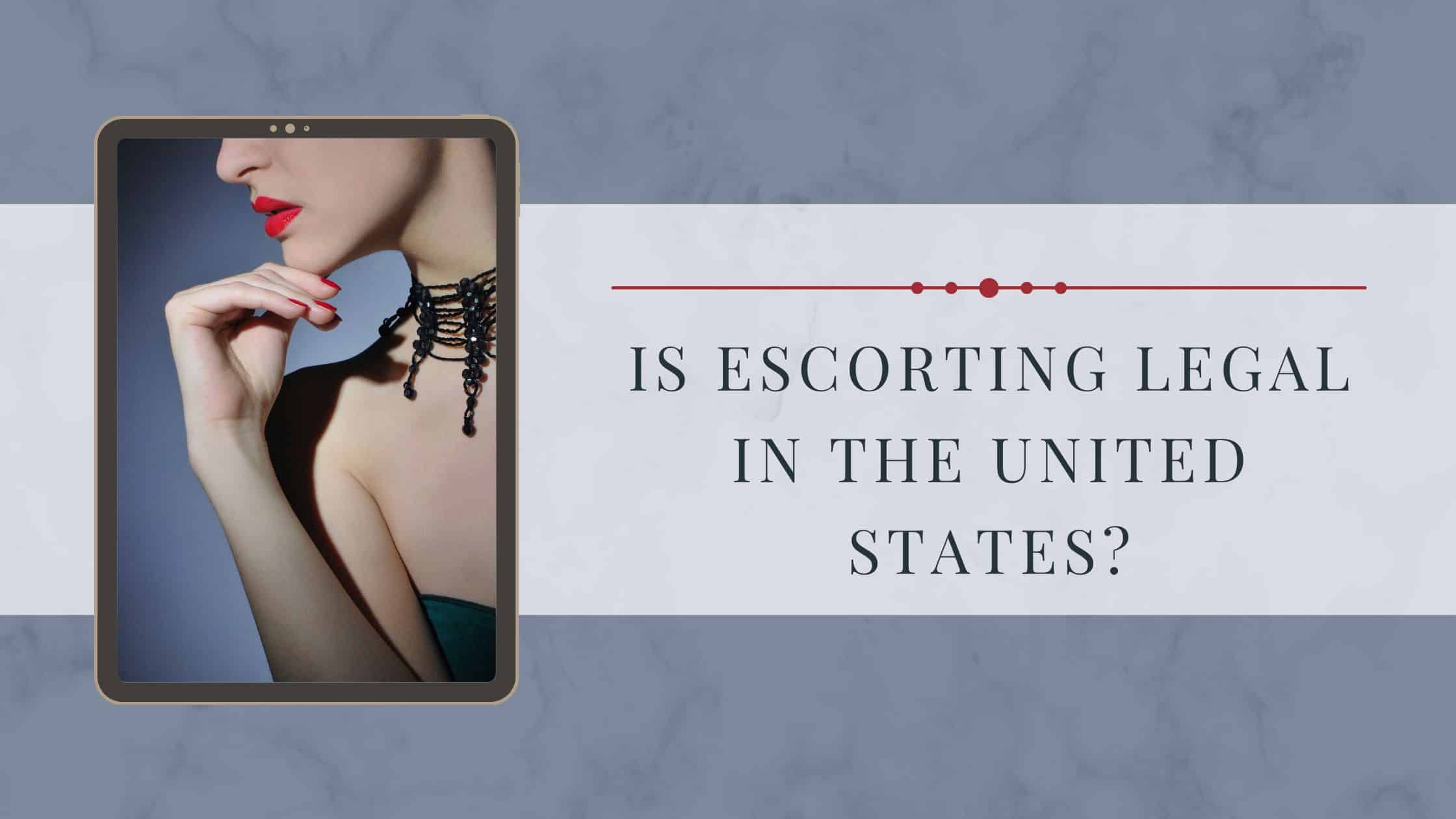Table of Contents
ToggleWhat Does the Term “Right to an Attorney” Mean?
If you are charged with a crime, you have the right to an attorney. This means that you can have someone offer legal counsel and represent you in court. If you can’t afford an attorney, the government will provide one for you.
The prosecutor cannot question you without your lawyer being there. Your lawyer can cross-examine witnesses and make objections on your behalf. This means they will do everything possible to help ensure that the outcome of your case is what you want it to be.

Get Smarter on US News, History, and the Constitution
Join the thousands of fellow patriots who rely on our 5-minute newsletter to stay informed on the key events and trends that shaped our nation's past and continue to shape its present.
Questioning
If you are arrested, the police must read you your rights. These are called your Miranda rights.
They include the right to remain silent, so you don’t have to say anything that could be used against you in a court of law. You also have the right to a lawyer, and if you can’t afford one yourself, the government will provide one for you. After your rights have been read to you, the police can only question you if one of these conditions is met.
Interrogation
If the police are investigating you, they can’t question you unless one of five things happen:
- You agree to be questioned.
- You have been charged with a crime, and a lawyer is present during the interrogation.
- A relative or guardian requests you to be interviewed after being informed of your right to remain silent.
- The interrogation could result in saving another person’s life.
- The investigating officer believes that not questioning you would create a public safety risk.
Line-up
When the police want to know who was involved in a crime, they might ask you to look at some people. This is called a line-up. The police might also show you pictures of people. If the police show you pictures, they will probably also show them to your lawyer. You should not say anything or answer any questions unless your lawyer is there too.

Hearings
During a hearing, you can talk to the judge about things related to your case. Your lawyer can speak for you in court and ensure that all the evidence supports your position.
Physical Examination
If you are involved in a physical assault case or DNA evidence that can be used, your lawyer may ask for a physical examination. This is so they can collect evidence in your favor and do it in a way that will give the best results. The prosecutor has to ask the judge for permission to do this.
This kind of exam is called a “custodial” exam. You have to be brought into custody overnight for this to happen. The defense attorney has to be there too. Any evidence collected during the exam cannot be used against you if this happens.
Arraignment
When you are officially charged with crimes related to criminal proceedings, this is called an arraignment. You will want to have a lawyer there. You might plead “not guilty”, “no contest”, or “guilty”. You must plead to all the charges you are accused of. If you plead not guilty, a day will be set for trial unless the prosecutor makes a deal with you.
Your attorney can negotiate with the prosecutor on what kind of sentence should be imposed. Depending on how serious your charges are and whether or not you have a criminal record, the punishment could include:
- Community service.
- A fine.
- Jail time served in a local prison instead of federal prison camps.
- Probation, where the court monitors your activities after you’re released from custody or other sentences agreed upon by both sides.
The Importance of Having a Lawyer Present on Your Behalf
It is always essential to have a lawyer represent you in any legal situation. A good lawyer can protect your rights and help guide you through the legal process, making sure you make the best decisions for your situation.

If you need legal help, it is vital to find a qualified and experienced lawyer in the type of case you need help with. Don’t be afraid to ask around for recommendations or do some research online to find an attorney suitable for you. Having someone knowledgeable by your side can make all the difference when it comes time to face court.
What Services Can an Attorney Provide?
If you are in a situation where it seems like you might get criminal charges, an attorney can help. They will advise you of your rights and what to do. They can also help with your defense strategy. This will ensure that you answer questions appropriately and don’t say anything that incriminates yourself.
Your attorney can also speak with witnesses for you and negotiate with the prosecutor. They will make sure that all the evidence is fair.
Create a Defense Strategy
A criminal trial is often about getting all of the facts on paper. This way, a jury can decide based on what they are shown. Your lawyer will work hard so they can present a strong argument for you while attacking any evidence the prosecution presents against you.
This makes sure that all possible angles are covered, so you can make sure you are not found guilty of the charges brought against you.
Talk to Witnesses
Your lawyer will talk to any witnesses involved in your case. This includes talking to them on the phone or in person. They will make sure that the witnesses know what you have told your lawyer and that they provide honest answers when testifying.
Your lawyer will talk to you about answering questions if you go to court. There are some things that you can leave out of your testimony or facts that might not seem necessary. But if they are brought up in front of the jury, it could make them suspicious. A criminal defense lawyer who has lots of experience knows what to do to help you win your case in court.
Ensure No One Incriminates Themselves
Your attorney knows what your constitutional rights are. This includes the right to remain silent when questioned by police. You mustn’t give any information that could incriminate yourself because anything you say can be used against you in court.

If you have been arrested, it is critical to have an attorney present when being questioned by authorities. They can help protect your rights and ensure that any information you provide is not used against you later.
Advise Someone of Their Rights
Having an attorney means you have someone who knows a lot about the law and how it works, helping you. They can help you with any problems with the law and help you during court proceedings.
Your attorney has been trained to use the law to protect you. They have experience with cases similar to yours, so they can give you a good idea of how the justice system might handle your case. In some cases, an attorney may even get charges dropped if there is not enough evidence to support them.
What If I’m Given a Public Defender?
If you are appointed a public defender, it is essential to know that this is an attorney who has been selected by the court to represent you in your criminal case. The public defender is assigned to your case and will stay with you through the entire process, from beginning to end.
It is essential to understand that the public defender works for the court and not for you, and their job is to provide you with legal representation.
If you have any questions about your case, you can talk to your public defender. They will give you some advice on what to do next. Remember, though, that you have the final say in what happens with your case. You are allowed to speak with another lawyer if you want, but if you do this later on, your public defender may not be able to help you anymore.
What If I Only Want to Act as My Own Legal Representative?
If you want to represent yourself in court, the judge must know you understand what will happen during the proceedings. You should discuss this with your lawyer first, so they can help explain what could happen if you decide to go this route.
If you disagree with a lawyer beforehand, the court might not react well when presenting yourself as your own legal representative.
Getting a Lawyer
If you are still unsure how to find a criminal defense attorney, you can contact the local Bar Association. You can also ask family and friends for recommendations on lawyers they would trust with their cases.
Choose an experienced attorney who will help you with your criminal case. Stay informed on what is happening and follow the attorney’s advice. The attorney will work hard to ensure that the evidence against you is countered with evidence showing someone else is guilty.
To do this right, it is vital that you understand all of your constitutional rights and what responsibilities have been assigned to each person involved in the situation. Only with a shared understanding can everyone put together a proper defense strategy for any criminal case.











